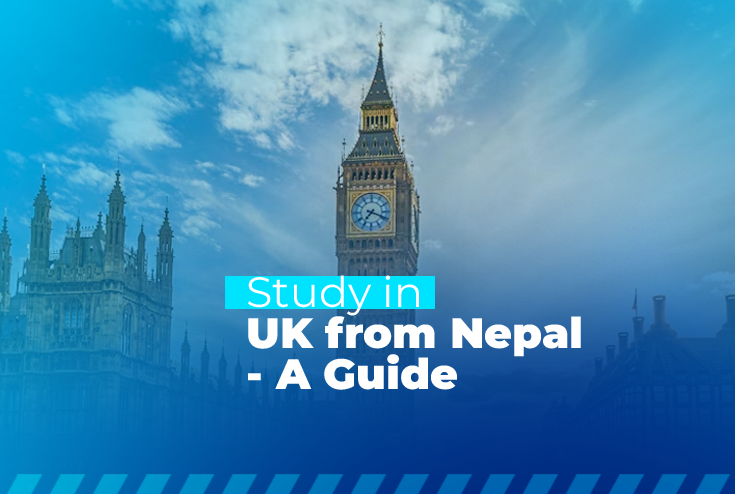
Canada

Canada is one of the fastest-growing destinations for Nepalese students, offering globally recognised degrees, safe cities, and a welcoming multicultural environment. With over 600,000 international students enrolling each year, Canada provides a high-quality academic experience combined with strong career opportunities.
From undergraduate degrees to postgraduate programs and professional courses, Canada is known for its research excellence, work-integrated learning, and pathways to permanent residency for graduates.
Why Choose Canada for Higher Studies?
Here’s why thousands of Nepalese students choose Canada each year:
Globally Recognised Degrees
Canadian qualifications are respected worldwide, giving graduates an advantage in the international job market.
Work While Studying
Students can work up to 20 hours per week during academic sessions and full-time during scheduled breaks.
Post-Graduation Opportunities
The Post-Graduation Work Permit (PGWP) allows graduates to live and work in Canada for 1–3 years depending on course duration.
Safe & Multicultural Environment
Canada is known for its low crime rate, diverse communities, and inclusive campuses.
Research & Innovation
Canadian universities provide hands-on research opportunities, advanced labs, and collaborations with industries worldwide.
Popular Courses for Nepalese Students in Canada
Engineering & Technology: Civil, mechanical, software, electrical, and environmental engineering.
Computer Science & IT: AI, cybersecurity, data analytics, and software development.
Business & Management: International business, finance, marketing, and supply chain management.
Health Sciences: Nursing, public health, pharmacy, and allied health programs.
Hospitality & Tourism Management: Supported by Canada’s growing tourism and service sector.
Canada’s education system emphasises practical training, co-op programs, and research projects, preparing students for global careers.
Eligibility Requirements for Canada Student Visa
Academic Qualifications
- Bachelor’s: Completion of +2 or equivalent with 50–60%.
- Master’s: Recognized bachelor’s degree with second division or equivalent.
- PhD: Master’s degree with academic and research experience; publications preferred.
English Language Requirements
- IELTS Academic: 6.0–6.5 overall for bachelor’s, 6.5–7.0 for master’s.
PTE Academic: 58–65 depending on program. - TOEFL iBT: 80–90 depending on university.
- Some institutions accept French-language programs in Quebec, a province in Canada.
Conditional admission programs are also available if language requirements are slightly below the minimum.
Documents Required for Canada Student Visa (Study Permit)
- Valid passport
- Letter of Acceptance from Canadian university or college
- Academic transcripts & certificates
- Proof of financial support
- English/French language test results
- Passport-sized photographs
- Statement of Purpose (SOP)
- Police clearance certificate (if required)
Key Points:
- Apply for the Study Permit after receiving the Letter of Acceptance.
- Financial proof must cover tuition, living expenses, and return travel. Minimum bank balance requirement is CAD 20,635.
Tuition Fees and Living Costs in Canada
| Expense Type | Approximate Cost (per year) |
|---|---|
| Tuition fees | Bachelor's: CAD 15,000 – 35,000 |
| Master's: CAD 18,000 – 40,000 | |
| Living Costs | CAD 12,000 – 18,000 |
| Health Insurance | CAD 600 – 1,000 |
| Miscellaneous | CAD 500 – 1,000 |
Work While Studying in Canada
- Students can work up to 20 hours per week during semesters and full-time during scheduled breaks.
- Part-time jobs are available on campuses, in retail, hospitality, and administrative roles.
- Work experience helps offset living costs and build professional skills.
Life in Canada for Nepalese Students
Cultural Experience: Canada is home to multicultural festivals, Indigenous heritage, and modern city life.
Multicultural Environment: Interact with peers from around the globe while connecting with Nepalese communities in Toronto, Vancouver, Montreal, Calgary, and Ottawa.
Weather & Lifestyle: Winters are cold and snowy in many regions; summers are mild. Students should be prepared for seasonal changes.
Academic & Social Balance: Universities encourage clubs, sports, volunteering, and networking alongside studies.
Food & Daily Life: Canadian cities offer a wide variety of global cuisines; Nepali groceries and cultural associations help maintain a connection to home.
Exploration Opportunities: From Niagara Falls to the Rockies, Canada’s scenic landscapes and urban centers are ideal for travel and outdoor experiences.
Bringing Family & PR Pathway
Study in Canada with Dependents: Students on full-time programs of one year or more can bring spouse and children if eligible.
Permanent Residency (PR):
- Canada allows graduates to apply for PR via programs like the Express Entry or Provincial Nominee Program.
- Work experience gained during and after studies improves eligibility for PR.
How to Prepare for Studying in Canada from Nepal
- Research universities and courses based on ranking, fees, and career prospects.
- Prepare for English/French (for Quebec) language tests.
- Arrange financial documents, SOP, and required certificates.
- Apply for admission and secure the Letter of Acceptance.
- Book your Study Permit application promptly.
Apply for Canada Studies with GIE
Golden Gate International Education (GIE) helps Nepalese students secure Canadian admissions and visas. Our team assists with:
- University selection and applications
- SOP and document preparation
- Scholarship guidance
- Visa filing and interview preparation
- Test preparation classes
Begin your Canadian education journey with GIE today — world-class education and life-changing experiences await.
Frequently Asked Questions (FAQs)
How much does it cost to study in Canada from Nepal?
Approx. CAD 27,000–55,000 per year including tuition and living expenses.
What GPA is required to study in Canada from Nepal?
Minimum 50–60% at +2 level for bachelor’s; second division for postgraduate programs.
Can I get a 100% scholarship in Canada?
Full scholarships are rare, but partial scholarships and grants are available.
How much bank balance is required for a Canada student visa from Nepal?
Proof of funds covering tuition, living expenses, and return airfare (approx. CAD 35,000–45,000 per year).
What documents are required for a Canada student visa?
Passport, Letter of Acceptance, academic transcripts, SOP, proof of funds, language test results, and photographs.
What is the minimum qualification to study in Canada?
+2 or equivalent for undergraduate; recognized bachelor’s degree for postgraduate programs.
Which subjects are best for studying in Canada?
Engineering, Business, Computer Science, Health Sciences, and Hospitality/Tourism are popular and in-demand.
How to study in Canada from Nepal?
Select course and university, secure admission, apply for Study Permit, provide financial proof, and prepare for travel with consultancy support.
How to get scholarships in Canada from Nepal?
Apply early, maintain strong academics, research university-specific scholarships, and seek expert guidance.




